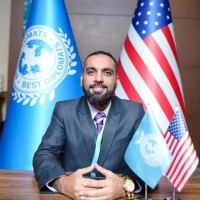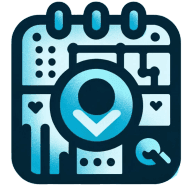17 Strategies for Managing Difficult Personalities During Event Planning
Navigating difficult personalities or conflicts during the event planning process can be a game-changer. Insights from a CEO and a Destination Wedding Planner lend credibility to these proven strategies. The article starts with the advice to restructure the payment timeline over coffee and wraps up with the use of data to cool situations, totaling seventeen unique insights. These expert recommendations are designed to equip professionals with the tools they need to handle any conflict effectively.
- Restructure Payment Timeline Over Coffee
- Address Conflicts Early and Directly
- Create Safe Space for Concerns
- Treat Conflicts Like Product Feedback
- Stay Calm and Step Back
- Schedule Face-to-Face Meetings
- Listen and Brainstorm Alternatives
- Maintain Calm Presence in Weddings
- Use Digital Workspaces for Solutions
- Focus on Solutions, Not Emotions
- Use DISC for Communication Styles
- Start with 'Four Words' Exercise
- Create Quick Visual Charts
- Be Direct and Intentional
- Stay Calm and Empathetic
- Set Expectations Early On
- Use Data to Cool Situations
Restructure Payment Timeline Over Coffee
I've learned in real estate that difficult personalities often stem from unmet expectations or miscommunication. When tensions arose with a land seller recently, I sat down with them over coffee, listened to their concerns, and found we could restructure the payment timeline to make everyone happy. I always try to stay calm, focus on interests rather than positions, and look for creative solutions that benefit both parties—it's amazing how often a simple compromise can turn a critic into an advocate.
Address Conflicts Early and Directly
I've found that addressing conflicts early and directly—while maintaining a calm demeanor—prevents small issues from snowballing into bigger problems. Just last month, when two vendors disagreed about setup timing, I sat down with both parties to understand their constraints and helped them develop a staggered schedule that worked for everyone.
Create Safe Space for Concerns
With my experience managing digital teams, I've found that addressing conflicts early and in person works best—just last month, I turned a tense situation between our designer and developer into a productive brainstorming session by getting them together for lunch. I always try to create a safe space where team members can express their concerns openly, and we use our project-management tools to document agreements and expectations to prevent future misunderstandings.
Treat Conflicts Like Product Feedback
I find that treating conflicts like product feedback helps remove emotional charge. I ask people to be specific about their needs just like they would describe a product feature they want. Just last month, when a client and service provider clashed over deliverables, I had them write down their 'must-haves' versus 'nice-to-haves,' which helped us find a practical middle ground.

Stay Calm and Step Back
I've learned that staying calm and taking a step back is crucial when dealing with heated situations. Last month, I had a seller who was really stressed about closing delays, so I invited them for coffee to listen to their concerns and explain the process in detail, which completely changed their attitude. As a house-flipper managing multiple projects, I always make it a priority to address conflicts early and directly, focusing on finding solutions rather than dwelling on problems.

Schedule Face-to-Face Meetings
I've learned that addressing conflicts early on is crucial—like last week when a seller was upset about our initial offer, I immediately scheduled a face-to-face meeting to walk through our numbers transparently. Sometimes, I'll bring in cookies from the local bakery to help lighten the mood during tense negotiations (it's amazing how food can break down barriers!). My best strategy is simple: listen twice as much as I talk and always validate people's concerns before jumping to solutions.
Listen and Brainstorm Alternatives
I always try to remember that behind every difficult interaction is usually someone feeling unheard or stressed. Just last week, when a client was upset about venue changes, I sat down with them over coffee and really listened to their concerns without jumping to solutions. By acknowledging their frustrations and working together to brainstorm alternatives, we actually ended up with an even better venue that made everyone happy.

Maintain Calm Presence in Weddings
In wedding planning, where emotions often run high, maintaining a consistently calm presence is essential. My approach to handling difficult personalities or conflicts is grounded in grace, tact, and clear communication. I strive to stay collected, even when clients or suppliers may be under stress, which helps to diffuse tension and keep the focus on creating a beautiful event.
Since weddings naturally bring heightened emotions, I remind myself that reactions aren't usually personal. I've learned that setting clear boundaries helps maintain a respectful and productive working relationship, and I'm not opposed to sending a firm yet polite email to establish expectations if needed. Often, I find that even challenging personalities respond positively to a steady, composed approach, which keeps everyone focused on the shared goal of a seamless wedding day.

Use Digital Workspaces for Solutions
I've dealt with plenty of challenging personalities while building tech teams and managing app launches. Just last month, when two developers clashed over project direction, I created a shared digital workspace where they could document their concerns and propose solutions asynchronously. I've found that giving people space to cool off while maintaining clear communication channels usually leads to better outcomes than forcing immediate confrontations.
Focus on Solutions, Not Emotions
I've found that the best way to handle difficult situations is to focus on solutions, rather than getting caught up in the emotion of the moment. Like when we had a seller who was furious about a low appraisal. Instead of defending the number, I walked them through comparable sales in their neighborhood and worked together to find a middle ground that made both parties comfortable.

Use DISC for Communication Styles
In my HR consulting work, I've found that addressing personality conflicts early and directly makes all the difference. When I notice tension, I use the DISC assessment framework to understand different communication styles—like when I helped a detail-oriented planner work better with a big-picture client by creating shared checklists and visual timelines. I always encourage teams to focus on the shared goal rather than personal differences, which helps keep everyone aligned even when stress levels are high.
Start with 'Four Words' Exercise
I discovered that starting team conflict discussions with a simple 'Four Words' exercise, where each person describes their perspective in exactly four words, helps cut through tension and creates understanding. Last week, when two vendors disagreed on setup timing, this approach helped them find middle-ground and actually led to a better layout than either originally proposed.

Create Quick Visual Charts
With my experience in fast-paced IT projects, I've learned that creating quick visual charts showing each person's concerns and goals makes conflicts more manageable and less personal. When team members can see their issues mapped out alongside others', they often naturally find compromise points, like when we resolved a recent disagreement about resource allocation by literally drawing out everyone's needs on a whiteboard.
Be Direct and Intentional
When dealing with difficult personalities or conflicts in project settings, I draw on my past experience restructuring my team at Redfox Visual. I had to address issues when our creative direction went astray, leading to generic work. This taught me the importance of being direct and intentional in communication. Keeping conversations straightforward allowed me to align everyone with my 'marketing-sucks' philosophy, ensuring clarity and purpose without the fluff.
In one case, a client was unhappy with our work's lack of distinctiveness after our expansion. I spearheaded personalized meetings to gather in-depth feedback and dove into reconciling their expectations with our creative vision. By cutting internal bureaucracy and streamlining processes, we rekindled the strength of our messaging, ultimately regaining client satisfaction. This approach to collaboration hinges on building teams that are empowered to speak their minds without fear.
I've found it's crucial to tackle issues head-on by revisiting the core values of what we do. Leveraging concise communication and investing in those with aligned values contributes to sincere client partnerships. Empowering the team to focus on quality over quantity has been key to resolving conflicts efficiently and creatively.

Stay Calm and Empathetic
I've learned that staying calm and empathetic is key when dealing with stressed homeowners during quick sales. Last month, when a client became upset about our initial offer, I took time to listen to their concerns over coffee, explained our evaluation process, and worked together to find a middle-ground solution that made everyone comfortable. I believe in creating a written communication plan at the start of each project to prevent misunderstandings and keep everyone aligned on expectations.
Set Expectations Early On
Hi,
I'm Fawad Langah, a Director-General at Best Diplomats, an organization specializing in leadership, business, global affairs, and international relations. With years of experience writing on these topics, I can provide valuable insights to help navigate complex issues with clarity and confidence.
Here is my answer:
Dealing with difficult personalities or conflicts is crucial for success in event planning. My strategy begins with clear communication. I set expectations early on, outlining roles and responsibilities for everyone involved. This helps minimize misunderstandings.
When conflicts arise, I focus on active listening. I listen to the concerns of all parties involved without interrupting. This shows respect and allows me to better understand their perspectives. After gathering information, I encourage open discussions to find common ground.
I also emphasize collaboration. By promoting a team-oriented mindset, I remind everyone that we share the same goal: a successful event. I often suggest brainstorming sessions where everyone can contribute ideas, fostering a sense of ownership among team members.
If necessary, I'm willing to mediate discussions. I approach this by remaining neutral and focusing on solutions rather than personal grievances. Finally, I follow up with everyone involved to ensure we are moving forward positively and addressing any lingering issues.
This approach has helped resolve conflicts and strengthened relationships within the team, leading to smoother event planning and execution.
I hope my response proves helpful! Feel free to reach out if you have any questions or need additional insights. And, of course, feel free to adjust my answer to suit your style and tone.
Best regards,
Fawad Langah
My Website: https://bestdiplomats.org/
Email: fawad.langah@bestdiplomats.org

Use Data to Cool Situations
Dealing with conflicts is part of running an agency, and I've learned that data often helps cool heated situations—like when we had a client frustrated with their ad performance, I showed them our daily tracking metrics and walked through the optimization process step by step. Instead of getting defensive, I focus on turning these moments into opportunities for transparency and education, which usually transforms difficult conversations into productive partnerships.










